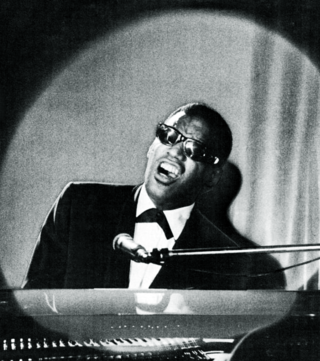
Soul music is a popular music genre that originated in the African American community throughout the United States in the late 1950s and early 1960s. It has its roots in African-American gospel music and rhythm and blues. Soul music became popular for dancing and listening, where U.S. record labels such as Motown, Atlantic and Stax were influential during the Civil Rights Movement. Soul also became popular around the world, directly influencing rock music and the music of Africa. It also had a resurgence in the mid-to late 1990s with the subgenre neo-soul, which added modern production elements and influence from hip-hop.
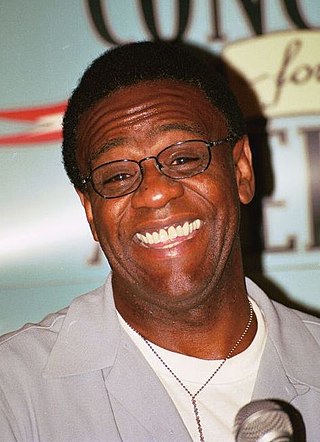
Albert Leornes Greene, known professionally as Al Green, is an American singer, songwriter, pastor and record producer best known for recording a series of soul hit singles in the early 1970s, including "Take Me to the River", "Tired of Being Alone", "I'm Still in Love with You", "Love and Happiness", and his signature song, "Let's Stay Together". After his girlfriend died by suicide, Green became an ordained pastor and turned to gospel music. He later returned to secular music.
Memphis soul, also known as the Memphis sound, is the most prominent strain of Southern soul. It is a shimmering, sultry style produced in the 1960s and 1970s at Stax Records and Hi Records in Memphis, Tennessee, featuring melodic unison horn lines, organ, guitar, bass, and a driving beat on the drums.
The Hi Rhythm Section was the house band for hit soul albums by several artists, including Al Green and Ann Peebles, on Willie Mitchell's Hi Records label in the 1970s. The band included the three Hodges brothers, organist Charles Hodges, bassist Leroy Hodges and guitarist Mabon "Teenie" Hodges, together with pianist Archie Turner and drummer Howard Grimes. Many recordings also used The Memphis Horns - Wayne Jackson and Andrew Love - of Stax fame, usually with Willie's brother James Mitchell arranging and (Perry) Michael Allen - piano (Alt). The recordings were made at producer Willie Mitchell's Royal Recording Studio in Memphis, Tennessee.
Hi Records is an American soul music and rockabilly label founded in Memphis, Tennessee, in 1957 by singer Ray Harris, record store owner Joe Cuoghi, Bill Cantrell and Quinton Claunch, and three silent partners, including Cuoghi's lawyer, Nick Pesce.

Ann Lee Peebles is an American retired singer and songwriter who gained popularity for her Memphis soul albums of the 1970s while signed to Hi Records. Her most successful singles include "I Can't Stand the Rain", which she wrote with her husband Don Bryant and radio broadcaster Bernie Miller, and "I'm Gonna Tear Your Playhouse Down". In 2014, she was inducted into the Memphis Music Hall of Fame.
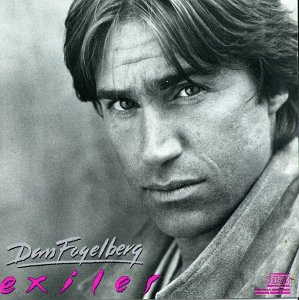
Exiles is an album by the American musician Dan Fogelberg, released in 1987. It includes the A/C hits "Lonely in Love" and “Seeing You Again” and the pop hit "She Don't Look Back". Fogelberg supported the album by touring with Wendy Waldman.

Otis Blue/Otis Redding Sings Soul is the third studio album by American soul singer and songwriter Otis Redding. It was first released on September 15, 1965, as an LP record through the Stax Records subsidiary label Volt.

The Great Otis Redding Sings Soul Ballads, simply referred to as Soul Ballads or Sings Soul Ballads, is the second studio album by American soul singer-songwriter Otis Redding, released in 1965. The album was one of the first issued by Volt Records, a sub-label of Stax Records, and Redding's first on the new label. Like Redding's debut Pain in My Heart (1964), Soul Ballads features both soul classics and originals written by Redding and other Stax Records recording artists. The recording sessions took place at the Stax studios in Memphis. The album features a stereo mix made by engineer Tom Dowd, replacing the early mono mix.

Donald Maurice Bryant is an American rhythm and blues singer and songwriter.
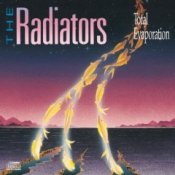
Total Evaporation is the fifth album by the Radiators, released in 1991. The band and label parted ways before the year was over. Total Evaporation sold more than 85,000 copies in its first six months of release.

Otis Ray Redding Jr. was an American singer and songwriter. He is regarded as one of the greatest singer-songwriters in the history of American popular music and a seminal artist in soul music and rhythm and blues. Nicknamed the "King of Soul", Redding's style of singing gained inspiration from the gospel music that preceded the genre. His singing style influenced many other soul artists of the 1960s.

Royal Studios is a recording studio located in Memphis, Tennessee, United States. Established in 1956, it is one of the oldest continuously operated music recording studios in the world.
Emmanuel Lynn Gales, known professionally as Little Jimmy King, was an American Memphis blues guitarist, singer and songwriter. A left-handed guitarist who played the instrument upside down, he concocted his stage name in deference to his two musical heroes, Jimi Hendrix and Albert King.

Complete & Unbelievable: The Otis Redding Dictionary of Soul, or simply Dictionary of Soul, is the fifth studio album by American soul singer-songwriter Otis Redding and his last solo studio album released before his death. The successful Otis Blue and the following performance at Whisky a Go Go led to his rising fame across the United States. The first side of the album mainly contains cover versions, and the second songs mainly written by Redding.

Blue Night is an album by the American musician singer Percy Sledge, released in 1994. Sledge considered it his first album since the early 1970s.
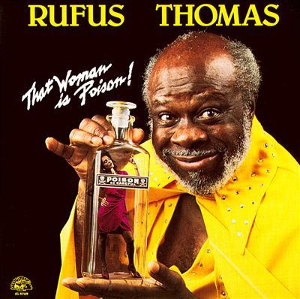
That Woman Is Poison! is an album by the American R&B musician Rufus Thomas. Originally recorded for King Snake Records, it was released in 1988 via Alligator Records. Thomas was in his seventies when he made That Woman Is Poison!

Toots in Memphis is an album by the Jamaican reggae musician Toots Hibbert. Released in 1988, Toots in Memphis was recorded without the Maytals. The majority of the album's tracks are covers of American R&B songs.
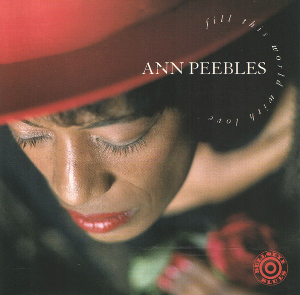
Fill This World with Love is an album by the American musician Ann Peebles, released in 1996. It was her second album for Bullseye Blues. Peebles supported the album with a North American tour, as well as shows in England.

Fear No Evil is an album by the American musician Robert Ward, released in 1991. He is credited with his band, the Black Top All-Stars. Ward supported the album with a North American tour. Ann Peebles covered the title track on her 1992 album, Full Time Love.
















